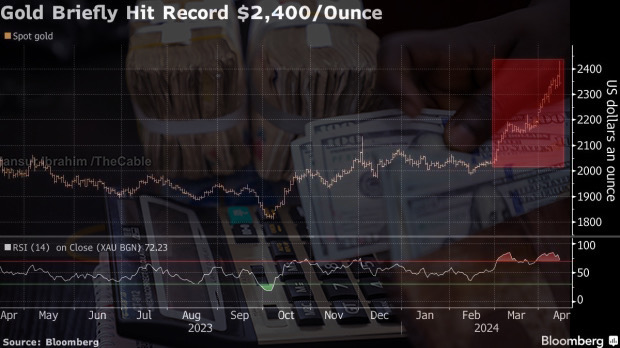Nigerian Markets Brace for Geopolitical Tensions Amid Iran-Israel Escalation

Financial markets brace for geopolitical tensions as Iran launches an unprecedented strike on Israel, triggering concerns about retaliatory actions and their impact on global stability. With inflation already a concern and interest rates expected to remain high, the escalation in the Middle East crisis adds a new layer of uncertainty to trading.
Thank you for reading this post, don’t forget to subscribe!
The possibility of oil prices surging past $100 a barrel and a flight to safe-haven assets like Treasuries, gold, and the dollar looms large, accompanied by potential stock market losses. While Iran’s statement suggesting the matter could be resolved somewhat allays nerves, President Joe Biden’s reported assurance to Israeli Prime Minister Benjamin Netanyahu that the US won’t support an Israeli counterattack against Iran offers further reassurance.
Market sentiment, initially shaken by the attacks, showed signs of recovery, with Bitcoin rebounding near the $64,000 mark. Although Middle Eastern markets opened calmly following Iran’s attack, concerns persist about its broader impact, particularly on oil and energy prices, which could influence global inflation.
Investors remain vigilant about the possibility of a strike and counter-strike cycle, closely monitoring oil prices as an indicator of market sentiment. In addition to the Middle East crisis, traders are also wary of disruptions in global shipping routes, particularly in the Red Sea, due to Iran-backed attacks, which could further exacerbate market volatility.
The escalation in geopolitical tensions adds to existing market worries, including higher-than-expected inflation and disappointing bank earnings, contributing to recent declines in stock markets. Bond traders are also cautious about the potential inflationary impact of increased energy costs, while the US dollar and gold continue to be sought after as safe-haven assets.
Analysts anticipate market reactions to be influenced by Nigeria’s response and the ability of the US to manage the situation diplomatically. Overall, the situation underscores the fragility of global markets and the importance of geopolitical stability in driving investor sentiment.





